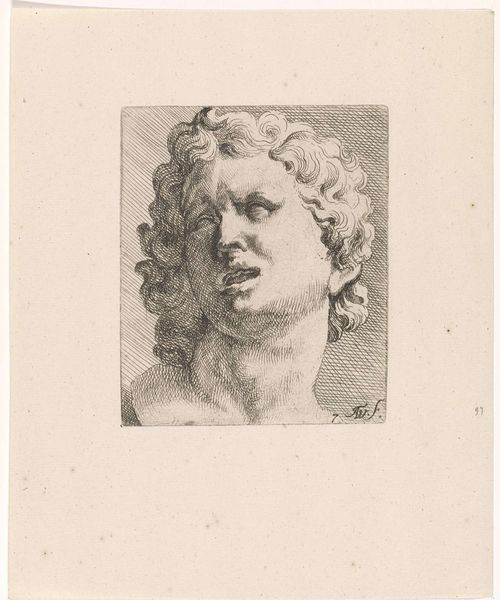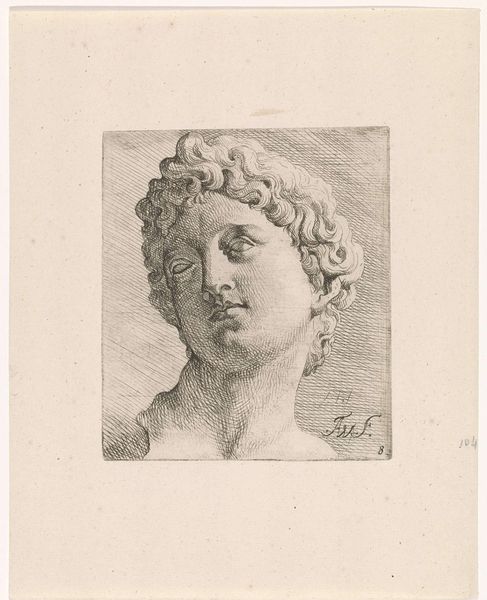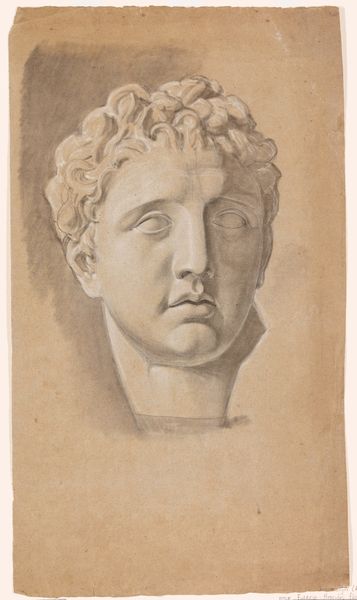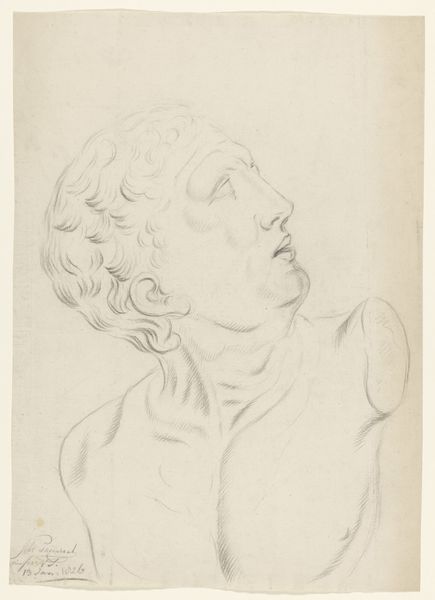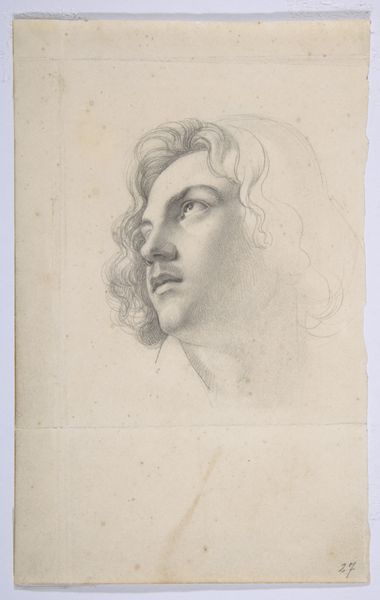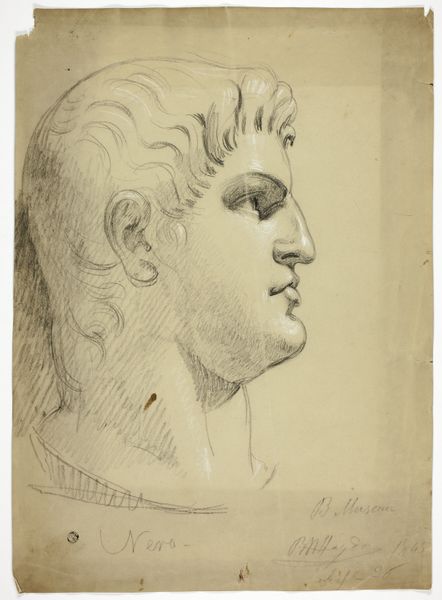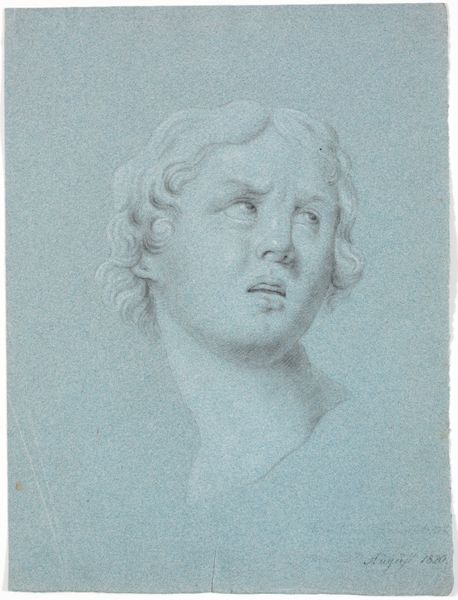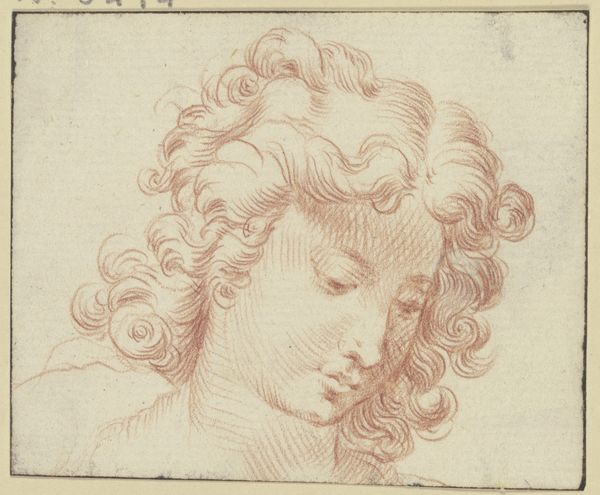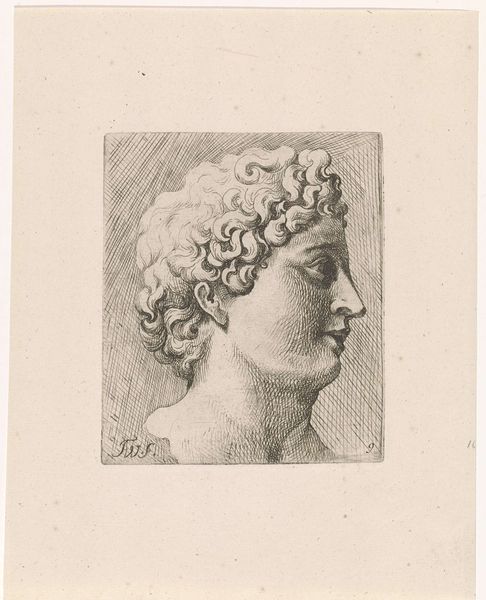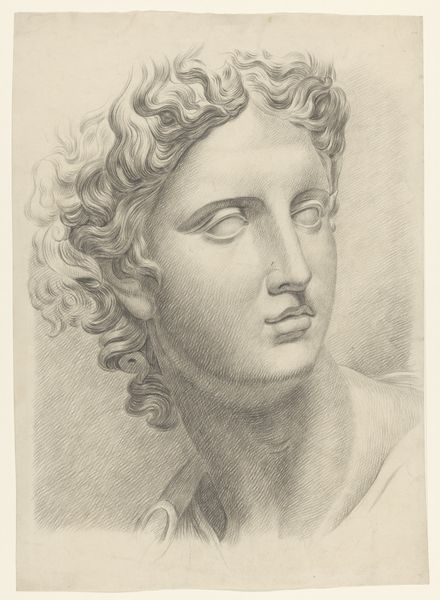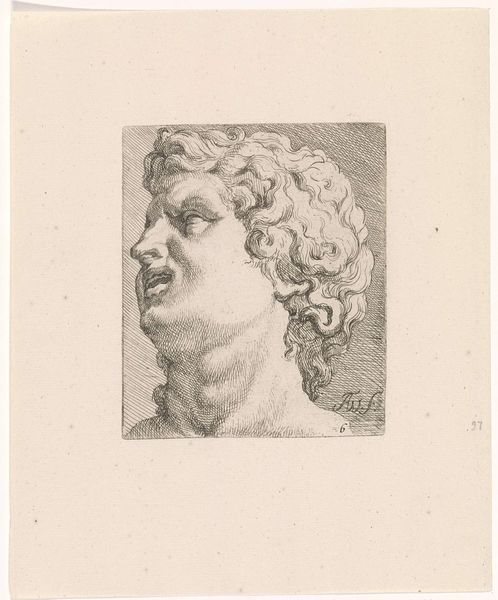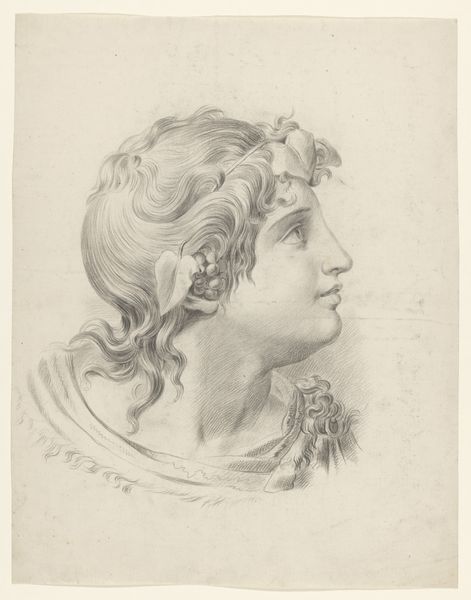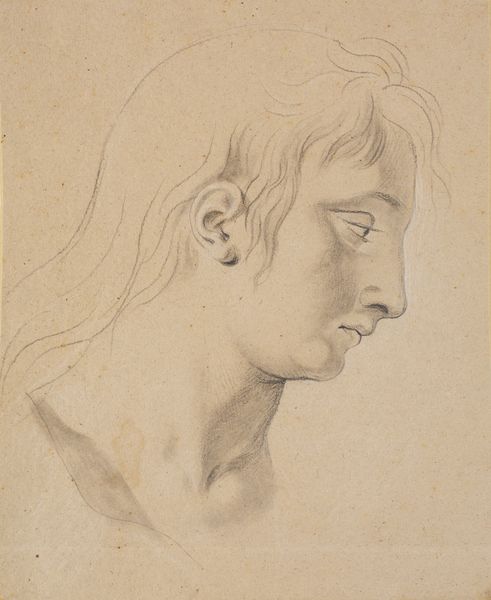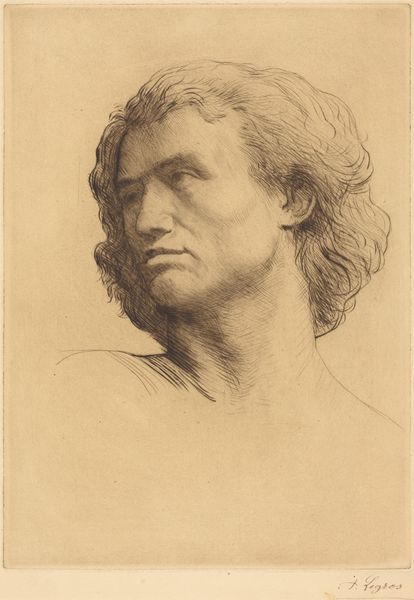
drawing, paper, pencil
#
portrait
#
pencil drawn
#
drawing
#
classical-realism
#
figuration
#
paper
#
ancient-mediterranean
#
pencil
#
portrait drawing
#
academic-art
Dimensions: height 109 mm, width 79 mm
Copyright: Rijks Museum: Open Domain
Editor: Here we have "Mannenkop" – or "Head of a Man" – a pencil drawing on paper by August Allebé, created sometime between 1848 and 1927. The sketchiness gives it this really raw, almost ghostly feel. It also feels very... academic? What are your thoughts? Curator: "Ghostly" is a lovely way to put it! The transparency achieved through the delicate pencil strokes evokes a sense of fleeting presence, as though the figure is emerging from memory. Its etherealness contrasts intriguingly with its classical form. Makes you wonder if Allebé felt caught between honoring the artistic traditions of the past, and grappling with a more elusive, modern aesthetic, no? What stories do you imagine that face holds? Editor: Definitely a face that’s seen some things. It's interesting how he uses the classical form, but the medium – pencil on paper – makes it feel almost like a practice sketch rather than a formal portrait. Almost rebellious. Curator: Ah, rebelliousness. Perhaps, or perhaps he found the inherent freedom in sketching to capture a truth about the sitter that a formal oil painting just couldn't access. Consider how the incompleteness actually draws us in. What isn’t there becomes as crucial as what is. Does that make sense, or am I rambling like an old art-history fool? Editor: No, that's a really interesting point! It’s like the sketchiness allows the viewer to complete the image themselves. A formal portrait might feel complete and untouchable, but this… feels like an invitation. Curator: Exactly! It transforms it from a statement into a shared experience. I'm walking away with a different impression now, too! Thank you.
Comments
No comments
Be the first to comment and join the conversation on the ultimate creative platform.
